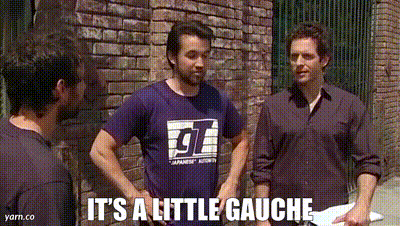16 (ish) Thoughts on Video Game Movies
The case for cautious optimism
VIDEO GAME MOVIES SUCK. This is a mathematical statement. Stephen Follows crunched the numbers: “movies based on video games have the worst average ratings from both critics and audiences across all sources of intellectual property.” Ouch.
THEY’RE HERE TO STAY. They may suck, but they’re making a shit-tonne of money. The Minecraft Movie flirted with $1B globally. The Super Mario Bros. Movie double-jumped right past it, ending up at $1.36B. And no, they’re not just for kids. They’re coming for you, too. With superheroes starting to fatigue, studios are sniffing out new IP like truffle pigs, from Elden Ring to The Sims, to Just Dance (?!).
THIS IS BETTER NEWS THAN YOU THINK. Superhero films are a genre unto themselves, with limited narrative wiggle room. Video games span everything under the sun, from truck driving to goose simulation. If Hollywood is entering a video game movie era, the range of IP available to ambitious, studio-friendly filmmakers promises to be more diverse than capecore and recycled franchises. This is good!
NO STORY, NO PROBLEM. One opportunity for big-budget IP auteurism comes from what Henry Jenkins calls “emergent narratives.” These are games like Roblox, Minecraft, and The Sims, where the ‘story’ isn’t prewritten. Instead, it is shaped by the player’s imagination, much like Lego or dollhouses. This blank slate can (and will) lead to incoherent or cobbled-together narratives (*cough* The Minecraft Movie *cough*). However, in the right hands, it opens space for talented filmmakers to bring ideas to the table, free(er) from the constraints of rigid story or character expectations.
Hold onto that optimism. We’ll come back to it. Promise.
VIDEO GAMES ARE TERRIBLE AT MOVIE-SHAPED STORIES. WE DON’T CARE.
A game’s story serves whatever fun task the game is built around, like disembowling monsters, shooting Nazis, or dropping down little green tubes. Gameplay first, story second. “There is a direct, immediate conflict between the demands of a story and the demands of a game,” says Greg Costikyan. “Divergence from a story's path is likely to make for a less satisfying story; restricting a player's freedom of action is likely to make for a less satisfying game."
We forgive narrative sloppiness in video games if it justifies fun gameplay. That’s why we’re happy for our RPG character to abandon saving the world to collect garlic cloves for a peasant baker.
GAMES ARE FULL OF CLICHÉS. WE DON’T CARE ABOUT THAT EITHER. Archetypal, trope-heavy storytelling is the bread and butter of video games. Even the best ones. Games are power fantasies. What better way to feel empowered than flexing a newfound set of abilities in environments we instinctively recognise? Red Dead Redemption 2 is a greatest hits of Western iconography for a reason. It makes us feel like the cowboys we’ve seen in the movies.
WE HAVE HIGHER STANDARDS FOR MOVIES… USUALLY
We’re less forgiving of clichés and sloppy narratives in our movies, because the story is the point. It’s not there to justify anything else. So it better be good!
Don’t get too smug - story can be secondary in movies, too. Particularly action and comedy. Step Brothers strings together just enough of a plot to justify the comedy set pieces. The Mission: Impossible franchise captures the stunts first and retrofits a plot around them. Structurally, movies like these are more similar to video games than we realise.
IF YOU USE A GAME’S STORY, YOU’RE GONNA HAVE A BAD TIME. Without interactivity, adaptations of video game stories are reduced to genre tropes and threadbare narratives. Playing Uncharted feels like being Indiana Jones. Watching Uncharted makes you wish you were watching Indiana Jones.
ADAPTATIONS SHOULD FOCUS ON THE STRENGTHS OF VIDEO GAMES, NOT THE WEAKNESSES. I’m reminded of our old friend Bresson. “It is in its pure form that an art hits hard.” Rather than clutching at what games do badly (plot), movie adaptations should use cinematic language to channel what games do ‘purely’.
GAMES TELL THEIR STORIES THROUGH SPACE, MOVIES THROUGH TIME… Games excel at ‘environmental storytelling,’ i.e. parcelling out narrative information through immersive spaces. In that sense, they are similar to theme parks: “It is the physical space that does much of the work of conveying the story.” Movies, on the other hand, tell their stories through time. Spoiler alert: you discover that Darth Vader is Luke’s father one hour 51 minutes and 17 seconds into The Empire Strikes Back, no matter what.
… BUT MOVIES CAN DO IT TOO. Back in 2002, Henry Jenkins noted that games borrow heavily from historical genres rooted in spatial storytelling, including road stories, hero quests, fantasy, adventure, sci-fi, horror, and war. Last I checked, we’ve had some pretty good movie versions of these stories. You could even say that cinema has been telling great video game stories longer than we’ve had video games…
EPISODIC STORYTELLING ISN’T UNCINEMATIC
Environmental storytelling tends to unfold episodically. “Each episode (or set piece) can become compelling on its own terms, without contributing significantly to the plot development,” says Jenkins. “ Often, the episodes could have been reordered without significantly impacting our experience as a whole.”
This may seem at odds with the cause-and-effect logic of a traditional screenplay. It’s not. Cinema has long been able to weave character development into modular plot structures, from The Wizard of Oz to Pulp Fiction. Earlier this year, Wes Anderson’s The Phoenician Scheme played out like a video game. Our protagonist tackled four independently compelling, environmentally distinct sub-quests, each featuring its own ‘mini-boss.’ Only after completing them did he reach a threshold, unlocking access to the endgame and a showdown with Benedict Cumberbatch’s final boss. This is a remarkably similar structure to Crash Bandicoot: The Wrath of Cortex.
BRING BACK WORLDBUILDING… BUT NOT LIKE THAT.
Environmental storytelling can also be called worldbuilding. The best video games excel at building living worlds that you’re happy to spend 10, 50, or 100 hours
wasting awaythriving in. In 2022, I spent an unspeakable number of hours playing Elden Ring, building my character to the peak of physical performance while my already negligent real-world muscles quietly atrophied. A good adaptation should capture that same sense of an intoxicating world existing beyond the screen.Cinema is pretty great at this, too. The canonical sci-fi and horror examples are just the beginning. We don’t usually think of Taxi Driver or Cruising in the same breath as big-budget genre flicks, but their respective versions of New York are as tactile, evocative and distinctive as anything you’d find in Star Wars or Lord of the Rings. So too are the worlds created in the best rom-coms and teen movies. Who wouldn’t want to live in the diorama-like Manhattan of a Nora Ephron movie, or Clueless’ Platonic ideal of high school?
Weirdly, the more that Hollywood talks about worldbuilding, the worse it gets. Worldbuilding today means planting a detail that will pay off in a sequel. The MCU spans 37(!) films, and I still don’t feel like anything is happening offscreen. Whereas when I watch Star Wars, I still believe that the Empire is genuinely out there doing nefarious shit. Great worldbuilding should feel independent of any specific story or franchise obligation. We can tell when it’s cynical.
TRANSMEDIA STORYTELLING IS HERE. THIS COULD GO EITHER WAY.
Speaking of cynical, in 2019, a significant plot point for The Rise of Skywalker was revealed in the online shooter Fortnite. Buckle up. You’re about to see a lot more of this. If you owned the IP, why wouldn’t you capitalise on it twice by splitting story details between the film and the video game?
I’d rather explore the Death Star in a game than watch a guided tour of it on YouTube. That’s the best case scenario for transmedia storytelling in the new era: games that offer immersive, narratively optional ways to live inside the worlds we see on screen. You get the narrative cohesion of film, and the tactile thrill of video games. Everybody wins.
The worst-case scenario for transmedia storytelling in the new era is that every property becomes Marvel on steroids, with key story information parcelled not just across multiple films but between games and movies. Film loses its autonomy. “Tune into the live Roblox event at 6pm tonight to find out what REALLY happened to Travis Bickle!”
MEET THE NEW STYLE, SAME AS THE OLD STYLE.
At first glance, the fast-cutting, high-paced editing style of today (what Bordwell called “intensified continuity”) may seem like a good fit for the kineticism of gaming. I disagree. A cut within a scene is an act of narration by the director. They are interrupting the scene to say “LOOK OVER HERE!” or “THIS IS IMPORTANT!” Information is revealed, not discovered.
If we think of gaming as a medium of discovery, then movie adaptations should mirror that stylistically. Surprise! Cinema was doing this 70+ years ago. Long takes, deep focus, and careful blocking filled frames with environmental detail, revealing information through mise-en-scène rather than cutting. Maybe the most modern movies need the most classical style.
VIDEO GAME MOVIES DON’T SUCK BECAUSE THEY’RE VIDEO GAME MOVIES. THEY SUCK BECAUSE THEY’RE BAD MOVIES. Stephen Follows is right: they’ve sucked so far. But that doesn’t mean they always will. Movies are more than capable of capturing the style, structure and storytelling modes games do best. See, I told you I’d end optimistically.







Having worked in video games and taken meetings in Hollywood, I would always be entertained by the cognitive dissonance. There is this deep condescension towards games that crashes into this dripping envy at the money. To a lot of people in the LA movie game video games are basically stupid toys for kids and incels that by some unfathomable cheat makes more money than they do. The problem is they want some of that gold. I exagerate, but not by much. So what you have had (with some notable exceptions) are projects mostly made from a deeply cynical and disdainful place. There are of course exceptions, and I’m talking about the business, not production side.
Put off reading this one until I could give it my most undiluted attention. Best decision I made all week. Love this, Ed.
1.) Yes.
2.) Yes.
3.) Yes.
4.) ...Yes, although vocabularically legitimizing that puts a culture at risk of losing sight of a game's most foundational elements (which a lot of modern designers have sadly lost the pulse on).
5.) Yes. Yes. Yes. Costikyan, you legend.
6.) ...Sort of. Less power fantasy and more giving you the tools to rise to a given occasion, ideally regardless of how much or how little the fantasy is actually bought into.
7.) Yes, but I wouldn't liken those movies to video games. Those movies tend to use structure as a means to exploring a certain philosophy (such as how we understand said narrative structures), whereas the structure of video games is meant to be entirely kinesthetic; there's space for emotional and cerebral elements, certainly, but too much of that can dilute the significance of our fundamental interactions with games.
8.) Yes, often precisely because a game's story is mistaken as its most effective engine. It never is, and never should be (because if it is, why is it a game at that point?).
9.) Yuuuuuuup!
10.) Not untrue, but we need to be careful to not mistake gameplay-centric telegraphing for environmental storytelling. You could spot a skeleton laying nearby, and suddenly be too busy ruminating on the narrative implications to be prepared for the surprise flesh-eating ghoul that killed the previous owner of said skeleton. When in-game, gameplay first.
11.) Yes, and we can understand it as such because movies are natural storytelling spaces.
12.) Haven't seen The Phoenician Scheme (am planning on it later this week), but yes, provided we understand that episodic heft as narratively-driven in the context of film, and as tension-based gameplay-driven in the context of a video game. Mad respect for shouting out Wrath of Cortex, too; a deep, delicious cut if I ever saw one.
13.) Yes, but I would replace "best" with "manipulative." I can guarantee you that your partiality to Elden Ring is because of how supremely robust its gameplay is, even if it feels like it's the worldbuilding. Cinematic worlds are often built with respect to what the stories in these worlds believe in thematically. A franchise like the MCU (which, for the moment, doesn't really collectively believe in anything outside of being a brand) will therefore suffer in its worldbuilding attempts.
14.) Ugh, don't remind me. I would go as far as to say that games will suffer even in the best case scenario.
15.) Yes.
16.) Yes!